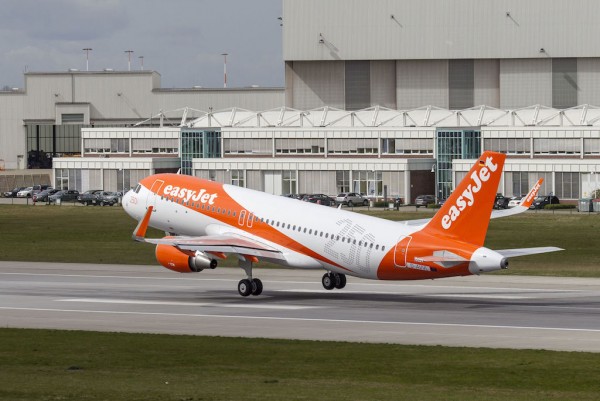EasyJet Plc ordered a dozen Airbus SE narrow-body jetliners to fuel long-term growth while reining in more immediate expansion plans by trimming capacity and pushing back another set of aircraft deliveries.
Europe’s second-biggest discount airline converted options to firm purchases for the A320neo planes worth $1.33 billion at list prices, it said in a statement Tuesday. Delivery is set for 2024. The shares rose as much as 2.8%.

EasyJet joins other major European carriers in scaling back near-term plans in an effort to bolster fares amid a glut of seats and an uncertain economic outlook in the region. At the same time, the aircraft purchase indicates the Luton, England-based company’s ambitions, and follows the acquisition of more than 30 U.K. airport slots after a bidding context with rival carriers.
Pretax profit for the 12 months through Sept. 30 fell 26% to 427 million pounds ($554 million), within the company’s forecast range, in what Lundren called a “difficult” year. Passenger numbers still increased by 8.6% to 96.1 million.
The CEO said forward bookings for the first half of fiscal 2020 are “reassuring” and slightly ahead of last year. That should help EasyJet extract value from a batch of operating slots at London Gatwick and Bristol airports that it acquired for 36 million pounds, which it plans to deploy from February.
The slots were previously used by collapsed U.K. tour operators Thomas Cook Group Plc, and that failure and others in the leisure sector should also help ease competition in coming months as other airlines hold back from increasing capacity.
Lundgren said that from today EasyJet will become the first carrier in the world to make all flights net zero carbon by offsetting emissions across its network.
-and-William-Lee-of-SF-Airlines-_-_127500_-_b76515ad8a48b365160a898b41931f2909db40fe_yes.png)



_N434AS_approaching_Newark_Liberty_International_Airport_-_127500_-_1b79f1ed8da0a8ef7399ec9ab6b688bc9321a1d0_yes.jpg)




